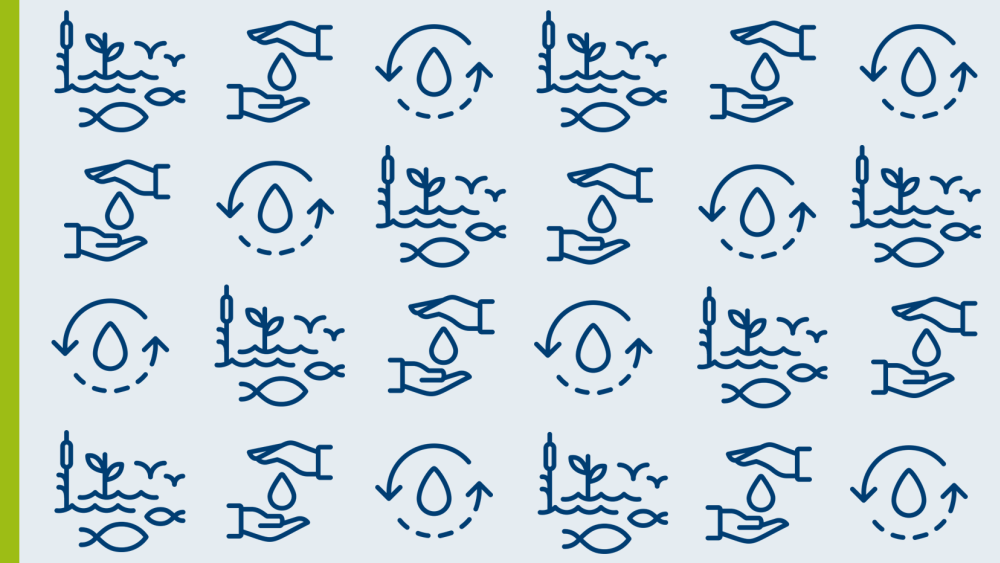
In future, you will recognise the new programme areas of IGB by these icons | Fig.: IGB
Social challenges of growing relevance to which we as an institute feel strongly committed played a major role in the selection of topics: issues on how to better protect aquatic biodiversity, what consequences can be expected from the progressive loss of biodiversity, or how water-based ecosystems and resources can be used and managed more sustainably in the Anthropocene. To achieve these goals, a deep understanding of how freshwater systems function and of how they are embedded in a regional and societal context is key.
In the programme area Aquatic Biodiversity in the Anthropocene (PA 1), we engage in research on the drivers and implications of biodiversity loss and on how biodiversity can be conserved. The focus is on lakes, rivers and wetlands in general, including small freshwater habitats such as ponds and streams, as well as feedback mechanisms between aquatic and terrestrial systems.
In the programme area Aquatic Ecosystem Services and Sustainability (PA 2), we investigate ecosystem services of freshwater habitats and how they can be managed and restored. Important goals are to understand the mechanisms providing resilience to freshwater ecosystems and to elaborate nature-based solutions that support the multiple functions of freshwaters. Production, regulating and cultural services of freshwater ecosystems, the processes that support them, and their threats will be studied. Sustainable fisheries and aquaculture are an important dimension of this programme area.
In the programme area Dimensions of Complexity of Aquatic Systems (PA 3), IGB aims to gain a better understanding of the dynamics and functioning of aquatic systems and the living organisms within them. We also investigate their spatial and temporal scaling. An important focus is on the interfaces and interactions between terrestrial and aquatic habitats, between sediment and the water column, between water and air, and between and within organisms.
Luc De Meester, scientific director of IGB, expressed his enthusiasm about this milestone. „Much preparatory work has been invested in the establishment of the new programme areas, and they are a crucial second step in the structural reform of IGB – after the reorganization of the departments. From now on, the programme areas will be a key forum for scientific innovation and inter- and transdisciplinary collaboration, and reflect our strong engagement for excellence in research as well as in societal impact,“ he said during the official launch. Also, six new speakers have been elected to co-ordinate and inspire the work in the programme areas.
Congratulations to Justyna Wolinska and Franz Hölker (PA 1), Martin Pusch and Markus Venohr (PA 2), and Stephanie Spahr and Tobias Goldhammer (PB 3), who take on this new task! But we would also like to thank Hans-Peter Grossart, Jonathan Jeschke, Christian Wolter, Sabine Hilt and Michael Hupfer, who have successfully contributed to interdepartmental networking and interdisciplinary cooperation as speakers of the previous programme areas.







